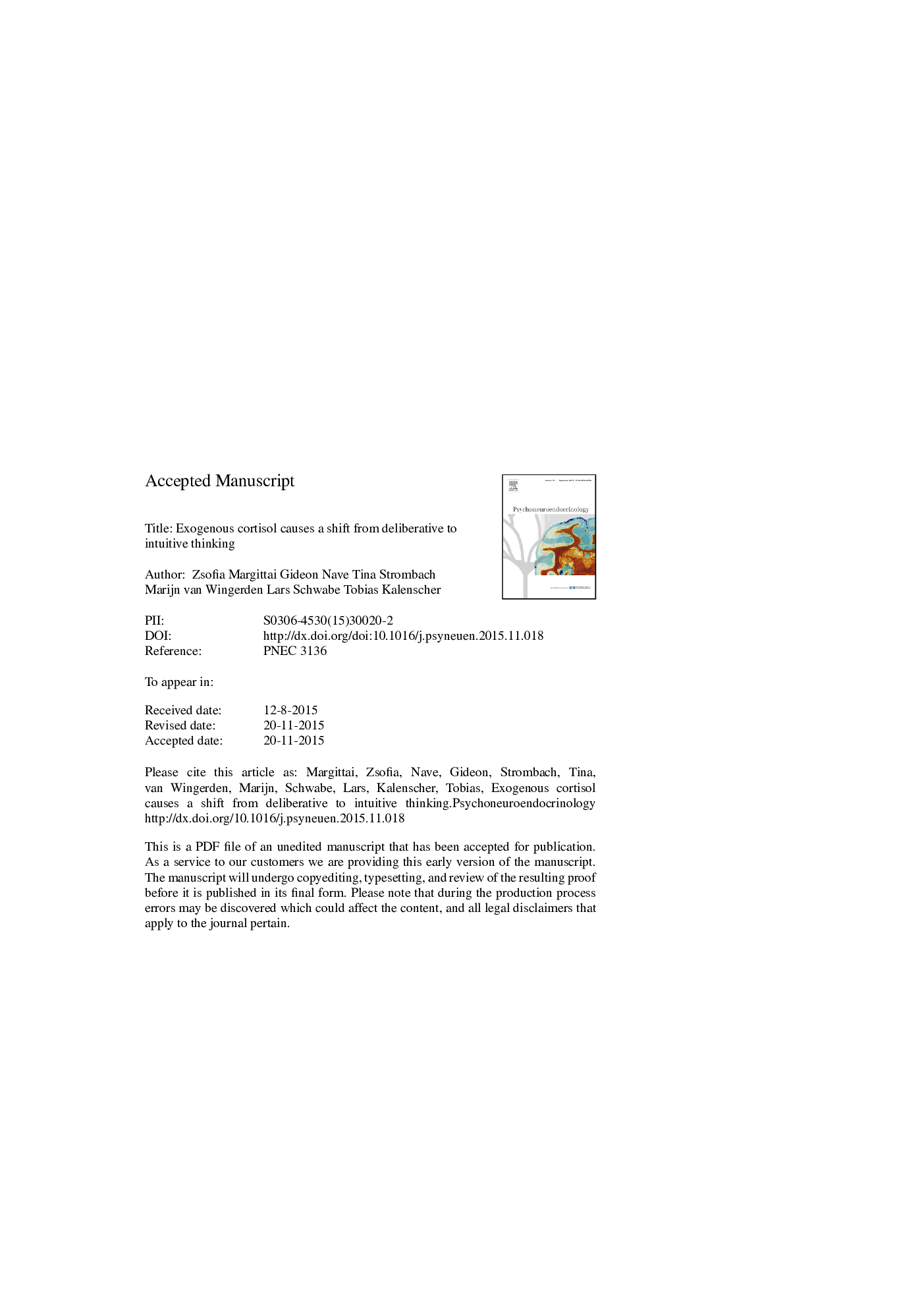| Article ID | Journal | Published Year | Pages | File Type |
|---|---|---|---|---|
| 6818387 | Psychoneuroendocrinology | 2016 | 19 Pages |
Abstract
People often rely on intuitive judgments at the expense of deliberate reasoning, but what determines the dominance of intuition over deliberation is not well understood. Here, we employed a psychopharmacological approach to unravel the role of two major endocrine stress mediators, cortisol and noradrenaline, in cognitive reasoning. Healthy participants received placebo, cortisol (hydrocortisone) and/or yohimbine, a drug that increases noradrenergic stimulation, before performing the cognitive reflection test (CRT). We found that cortisol impaired performance in the CRT by biasing responses toward intuitive, but incorrect answers. Elevated stimulation of the noradrenergic system, however, had no effect. We interpret our results in the context of the dual systems theory of judgment and decision making. We propose that cortisol causes a shift from deliberate, reflective cognition toward automatic, reflexive information processing.
Related Topics
Life Sciences
Biochemistry, Genetics and Molecular Biology
Endocrinology
Authors
Zsofia Margittai, Gideon Nave, Tina Strombach, Marijn van Wingerden, Lars Schwabe, Tobias Kalenscher,
